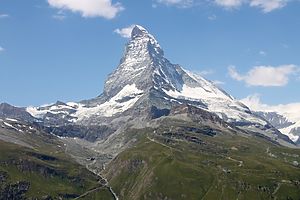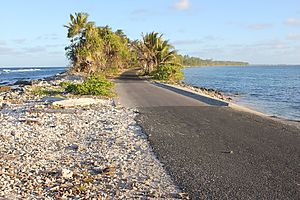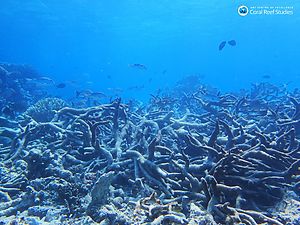How climate change is reshaping our world
How climate change is reshaping our world
From global heating, melting ice and the changing acidity of our oceans, climate effects are far-reaching and intertwined. In some cases, their effects naturally accelerate after they have been initiated by humans – in the case of Siberia, regional heating has led to arctic permafrost beginning to melt, and with less snow covering the landscape, less heat is reflected back into space, and more is absorbed. Earth has lost 28 trillion tonnes of ice in less than 30 years, so it’s unsurprising that the face of our planet is changing. This gallery shows some of the surprising and shocking impacts of our changing climate.

The Matterhorn in Switzerland is a glacial horn. Glaciers carve valleys in our landscapes, called cirques. It’s possible for multiple glaciers to erode away rock until all you’re left with is a sharply cut pointed mountain like this. These formations remain hidden under ice until the glaciers have melted away, like in the case of the Matterhorn. © Richard Allaway

Uunartoq Qeqertaq (which translates to Warming Island) became recognised as an island in September 2005. Rapidly retreating ice shelves mean that it has detached from Liverpool Land, a peninsula in eastern Greenland. © U.S. Geological Survey

Tuvalu is a remote country of low lying atolls, making it extremely vulnerable to climate change. Global sea levels rose about 20cm in the last century. Further predicted rises mean that Tuvalu could be uninhabitable in 50-100 years. © Department of Foreign Affairs and Trade, Australia

This is a graveyard of Staghorn coral, in Yonge reef, the Northern Great Barrier Reef. Increasing water temperatures, and increasing acidity of oceans caused by higher atmospheric CO2 concentrations, are causing major problems in our oceans. Coral reefs are rapidly rapidly in today’s waters, which are 1°C higher than historic levels. At 1.5°C, a further loss of 70-90% of what remains is projects, and at 2°C, virtually all corals will be lost. Oceans are vital carbon sinks, and around half a billion people rely on fish from coral reefs as their main source or protein – so this volatility is a cause for serious concern. © Greg Torda ARC Centre of Excellence for Coral Reef Studies

